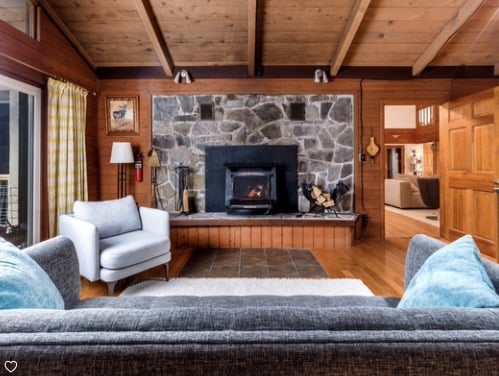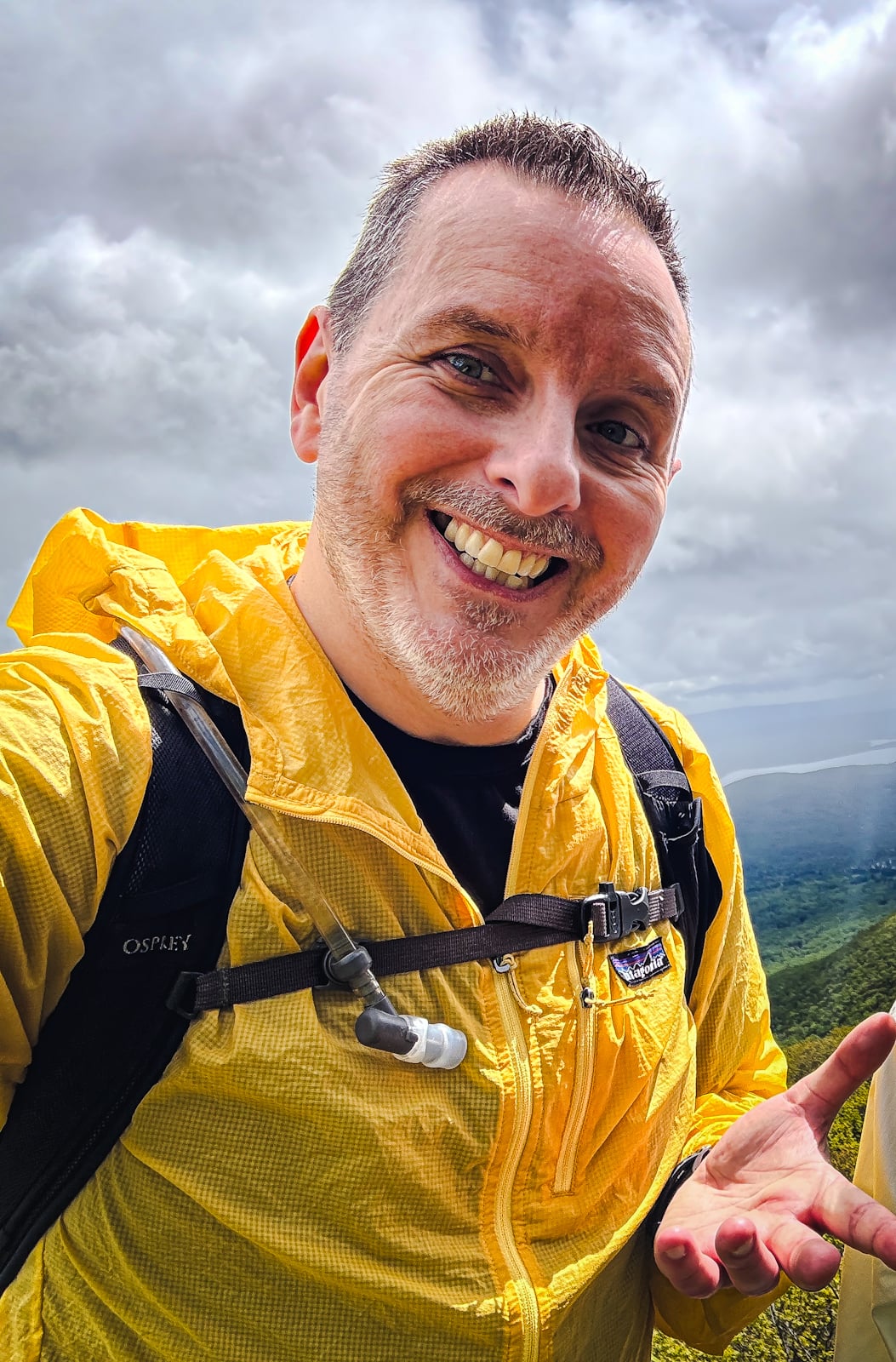Disclosure: This content may contain affiliate links. Read my disclosure policy.
Out-and-back from the north. A little steep at first.
This is a great hike if you crave solitude among mountain laurel and pitch pines, as well as interesting geology — but also enjoy solid scenic views!
The parking area is the same lot used by visitors to Bash Bish Falls. So, although it’s a large lot, bear in mind it’s for one of the most popular destinations in the area.
From the parking area follow the road behind the lot.
After 500 ft or so, the trail heads south and your ascent begins.
Warning! In warmer months, this hike includes potential exposure to rattlesnakes.
Hike Alander Mountain from Bash Bish
Look for the white blazes of the main South Taconic trail which runs north/south for apx 20 miles in total along the western Taconic ridge line.
Note: Unlike the blazes in the Catskills, Taconic blazes are non-reflective. So if you don’t have a headlamp and batteries in your pack, make sure you’re off these hills before dark.
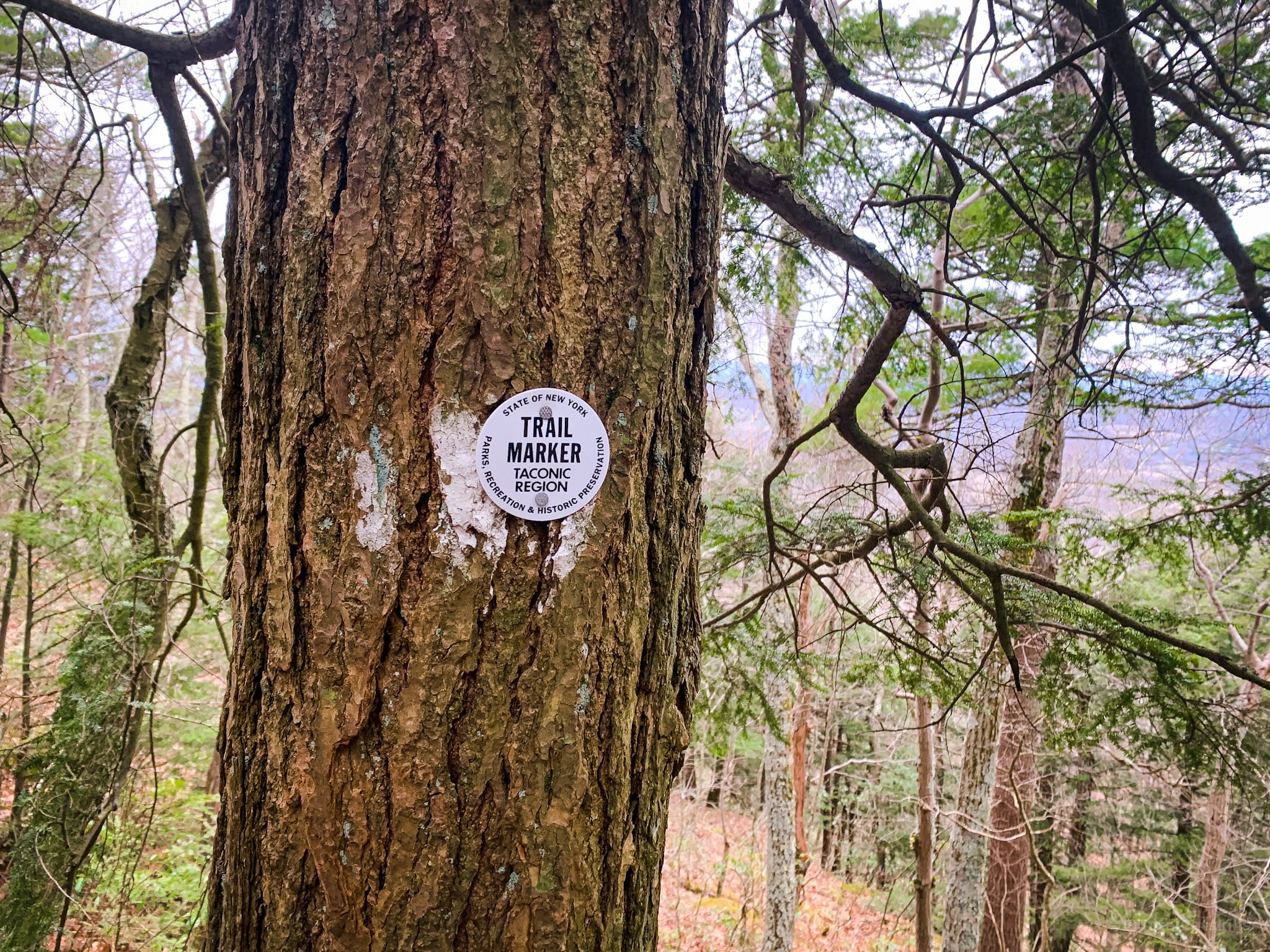
Taconic Geology
I’m so used to seeing Catskills shale and sandstone that the rocks on Alander immediately struck me as wildly different and even alien-seeming. The Catskills underwent no metamorphic processes; there’s much shale in the Catskills, but no slate. In contrast, the Taconics underwent intense metamorphism.
Taconic rocks are remarkably shiny, almost metallic-looking. There’s so much beautiful quartzite on display as inclusions, or as discreet rocks, just lying in the open or draped in moss. The geologic texture of the Taconics is one of several characteristics that make them magical to hike.
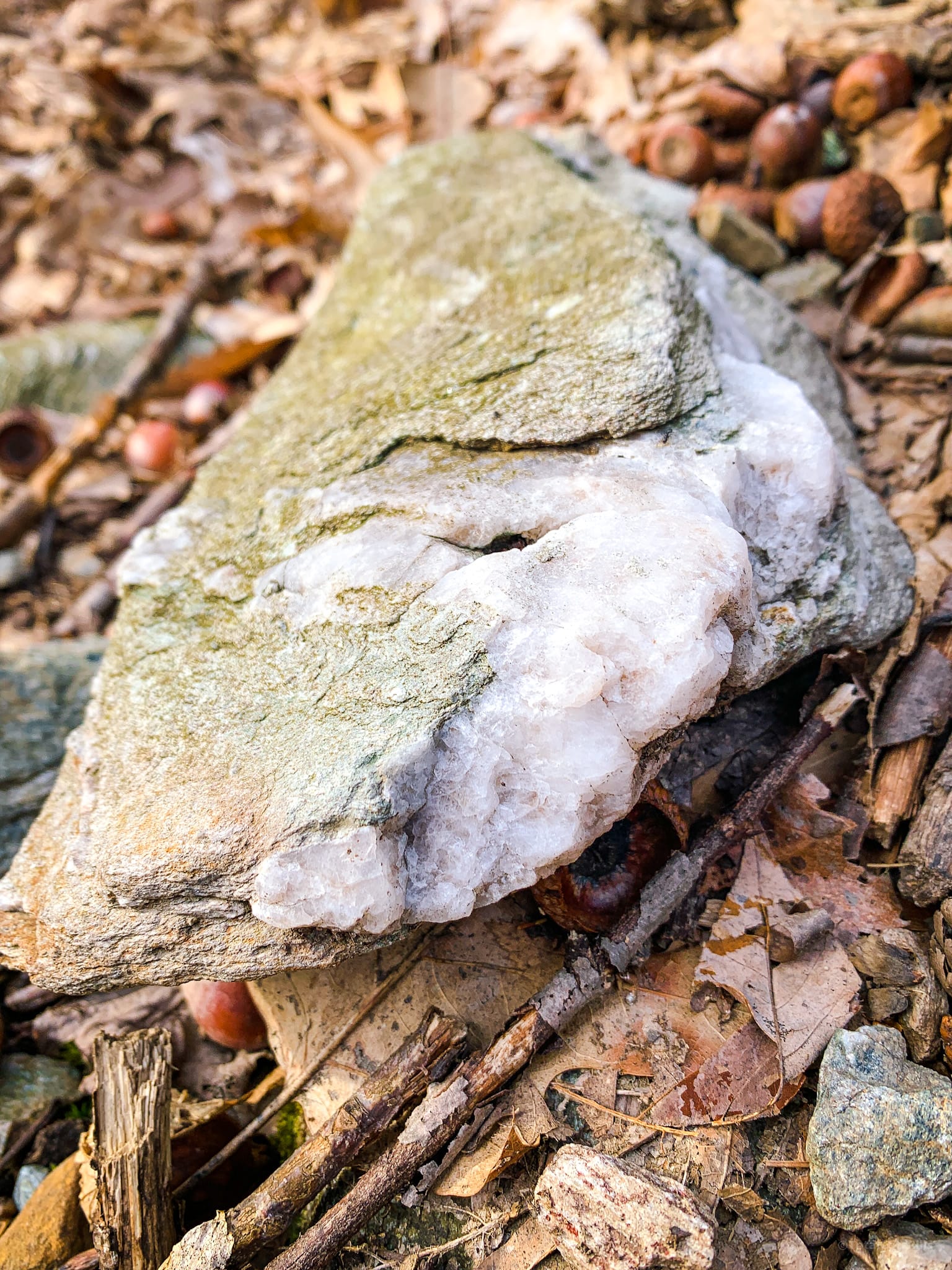
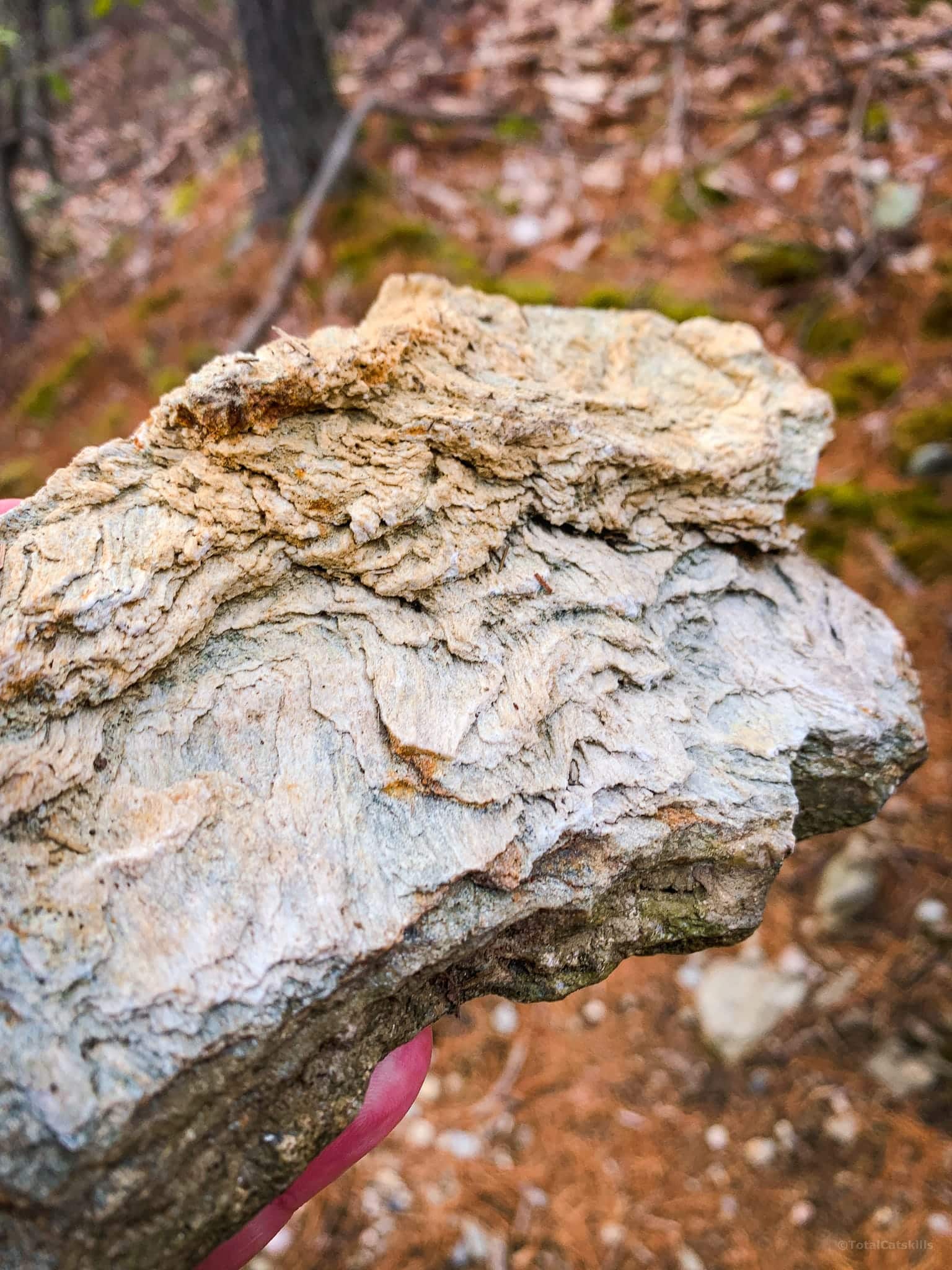
Much of the immediate scenery is like this. Everywhere you look is an amazing natural still life…
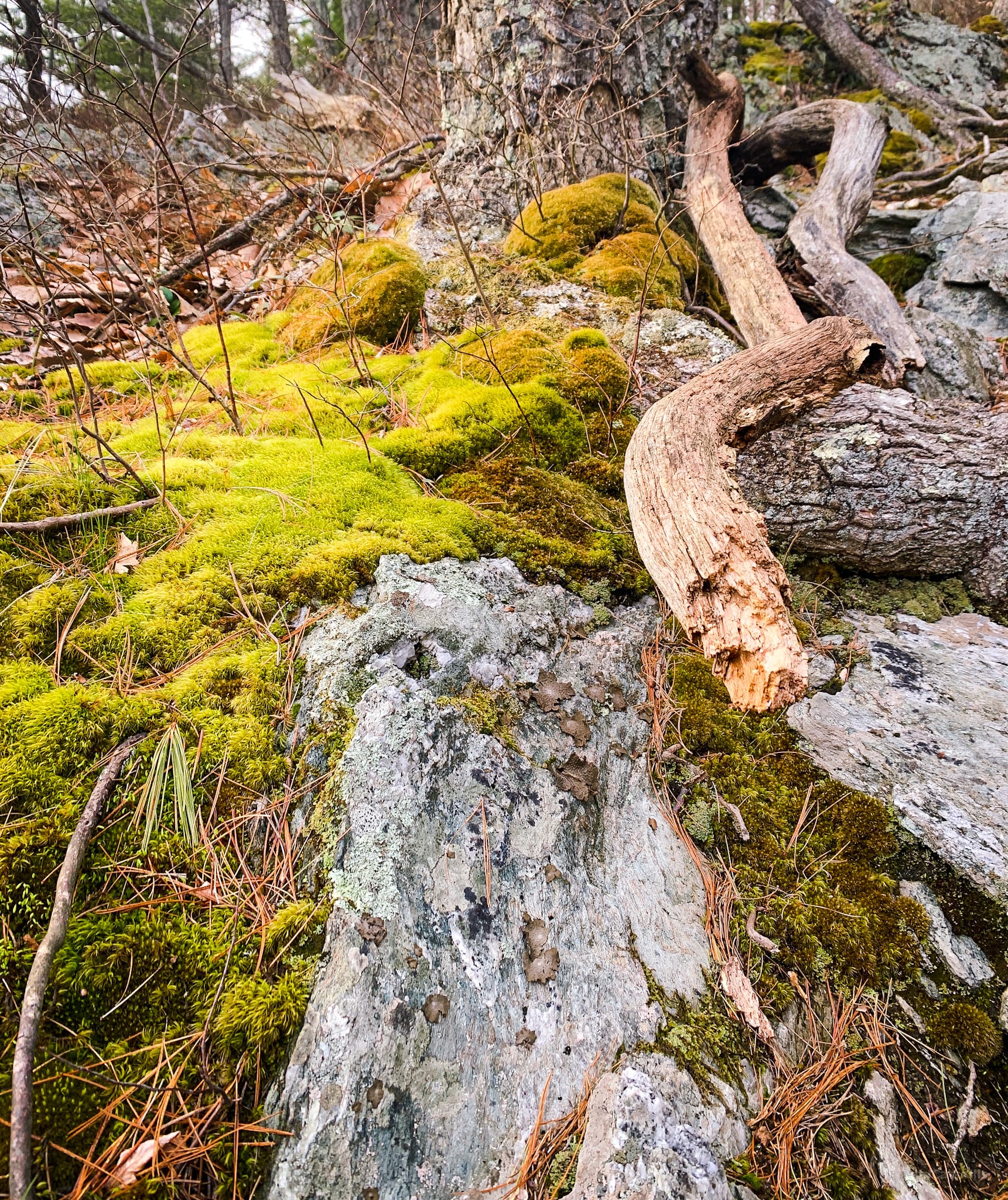
Side Trail to Taconic View
At 1550’, keep an eye to your left for a short side trail (blue blazes) that leads down to a nice view point. You’ll be looking across to the Catskills escarpment.
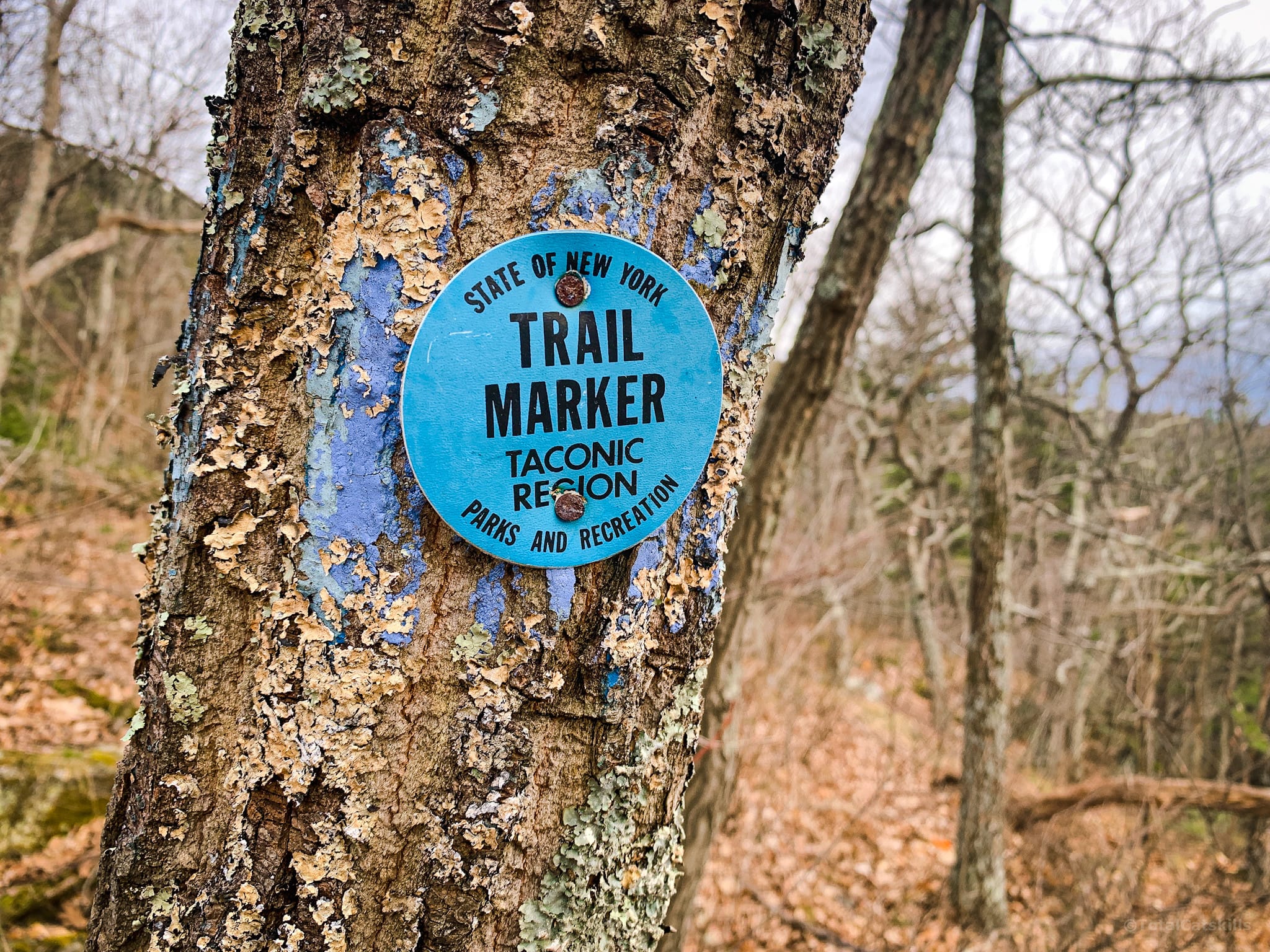
Back on the main trail (white blazes again), the trail begins to get a little rugged as you gain elevation.
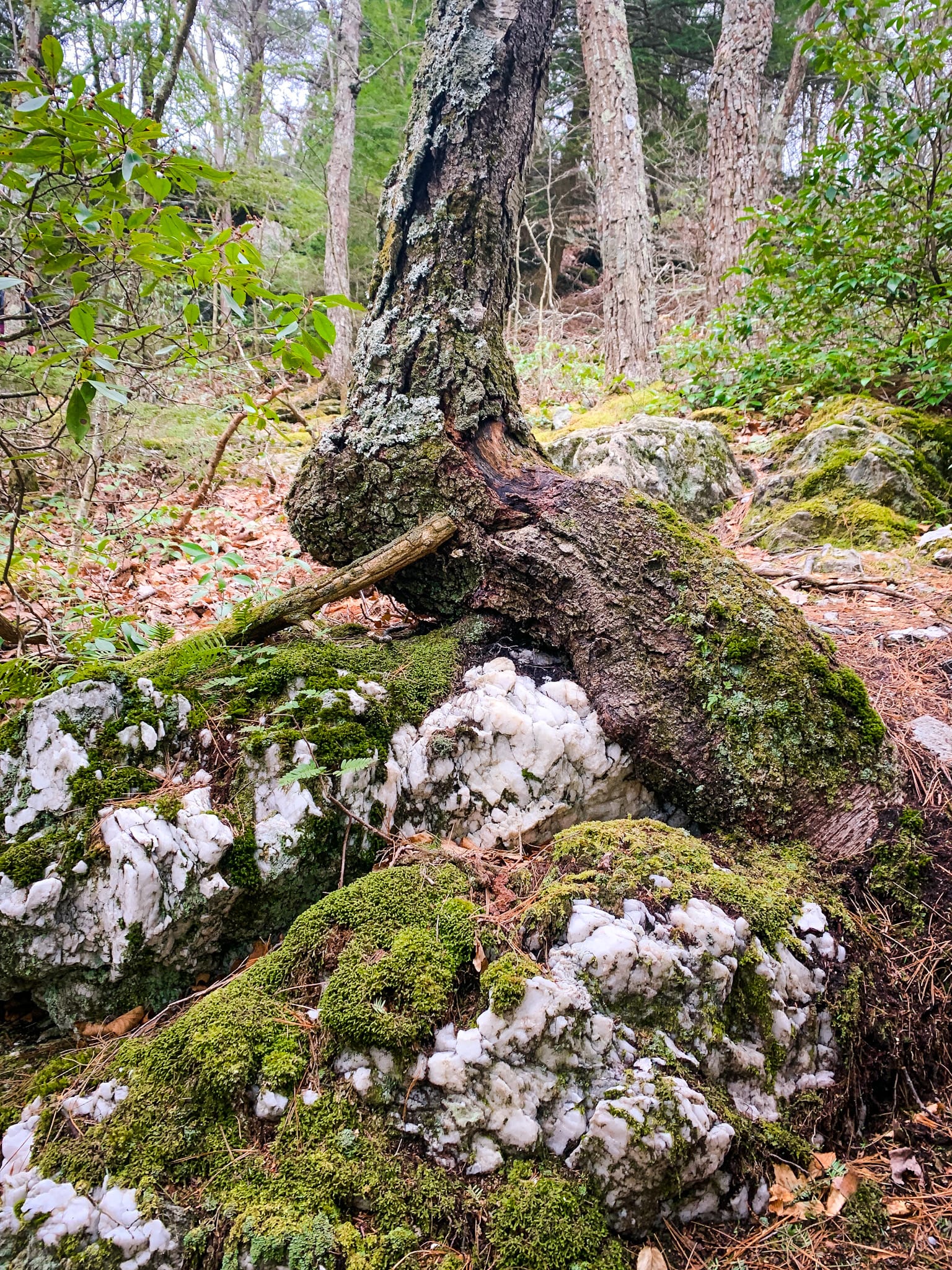
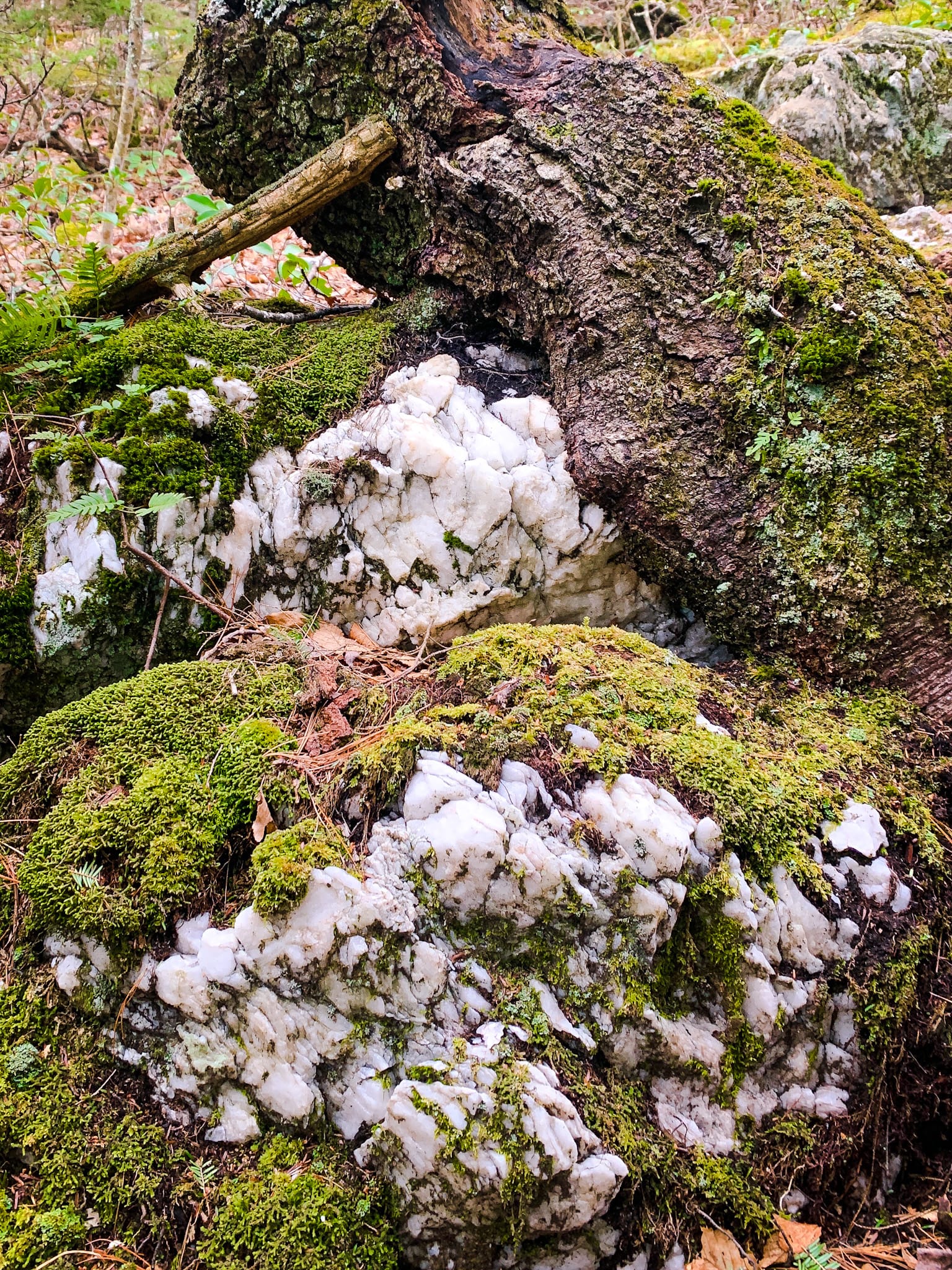
Scramble on Alander Mountain
At 1750’ this rock scramble presents a bit of a challenge. It’s steep and tricky, and people have fallen here and been injured, so proceed with caution. This section is short, and is the only tricky spot on the hike.
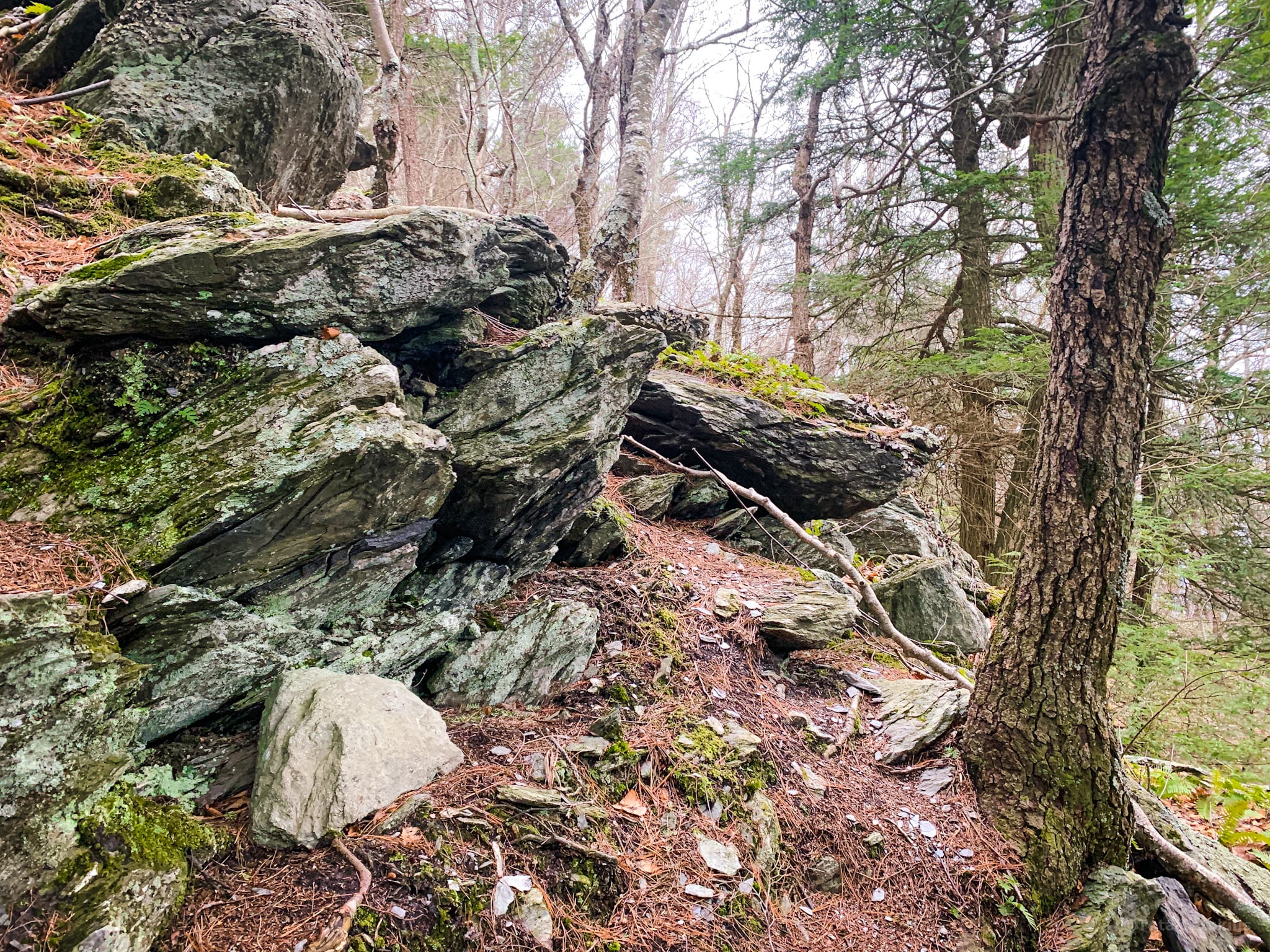
Alander Mountain: Upper Ridge
Once you get above 1800’, the hardest work is done. The trail winds through dense mountain laurel stands and over rocky nubs. There’s lots of pitch pine too.
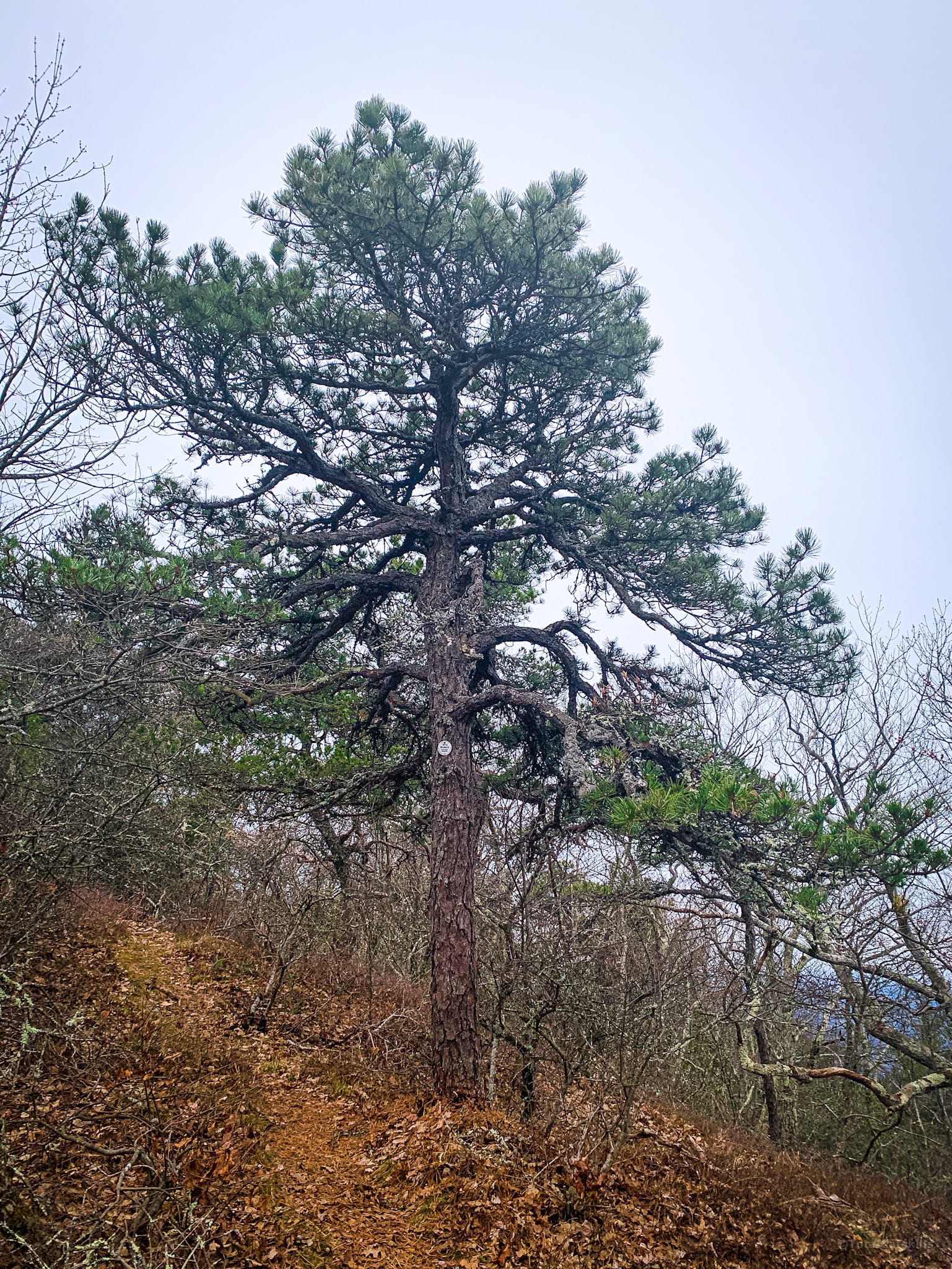
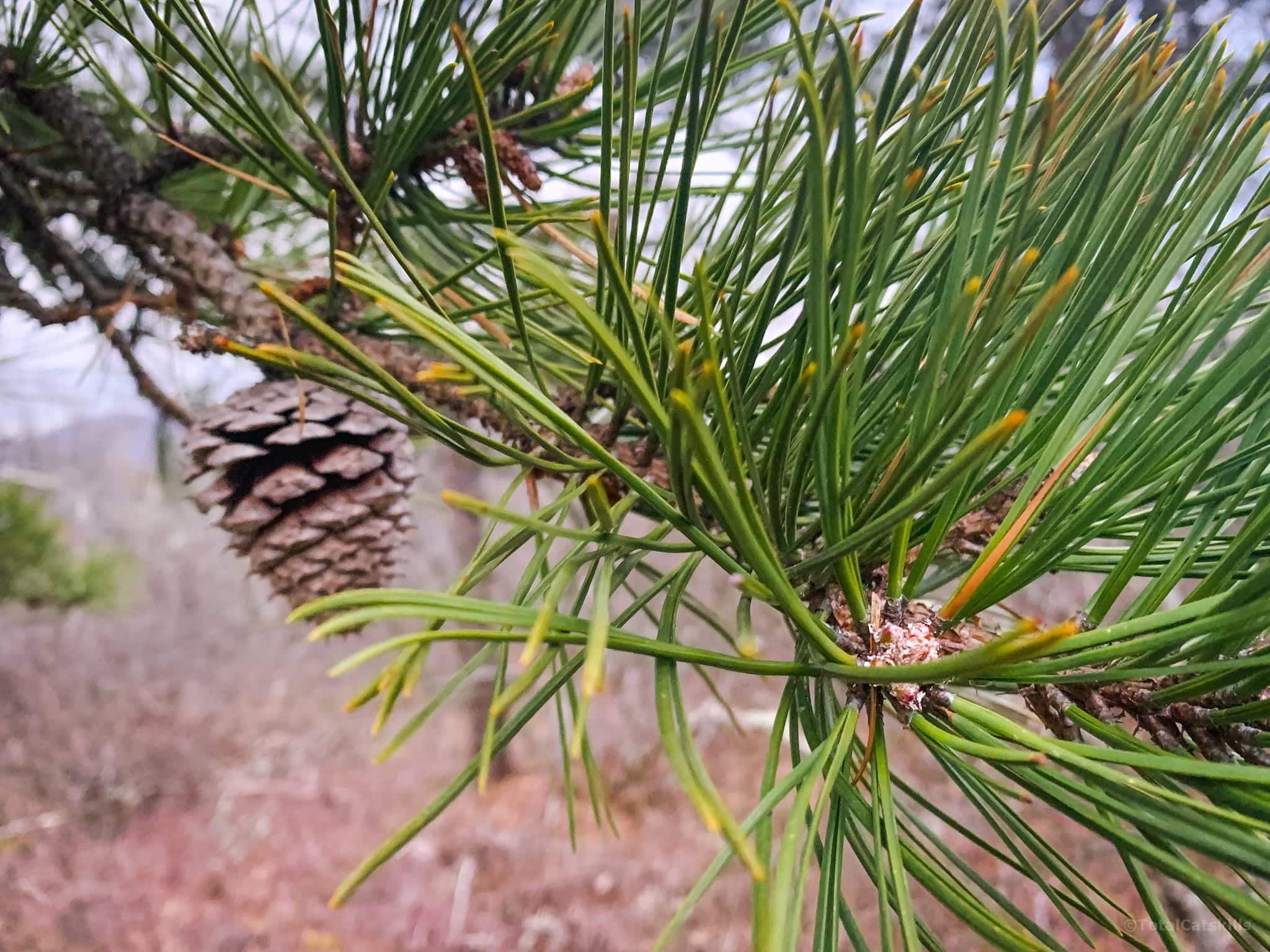
Here’s three seconds of video showing some of the differences between white pine and pitch pine.
Briefly: on white pine the needles are thinner and arranged in fascicles (groups) of five, whereas on pitch pine the needles are thicker and arranged in fascicles of three.
The Fire Watcher’s Cabin
About 300’ before the summit, a side trail heads left to a run-down old cabin which is worth exploring. On this day, the light was fading and we were short on time, so we didn’t visit — but it’s a fun stop and I will get back to it soon via a different route to Alander’s otherworldly summit.
Alander Mountain’s Summit
Unlike the Catskills, where most of our summits are treed-in, Alander’s summit is a wide-open expanse of bald rock. Concrete footings for the old fire tower (dismantled in the 1930s) are still visible.
The view extends west and south to the foothills, and Brace and Frissell mountains are visible in the near distance.
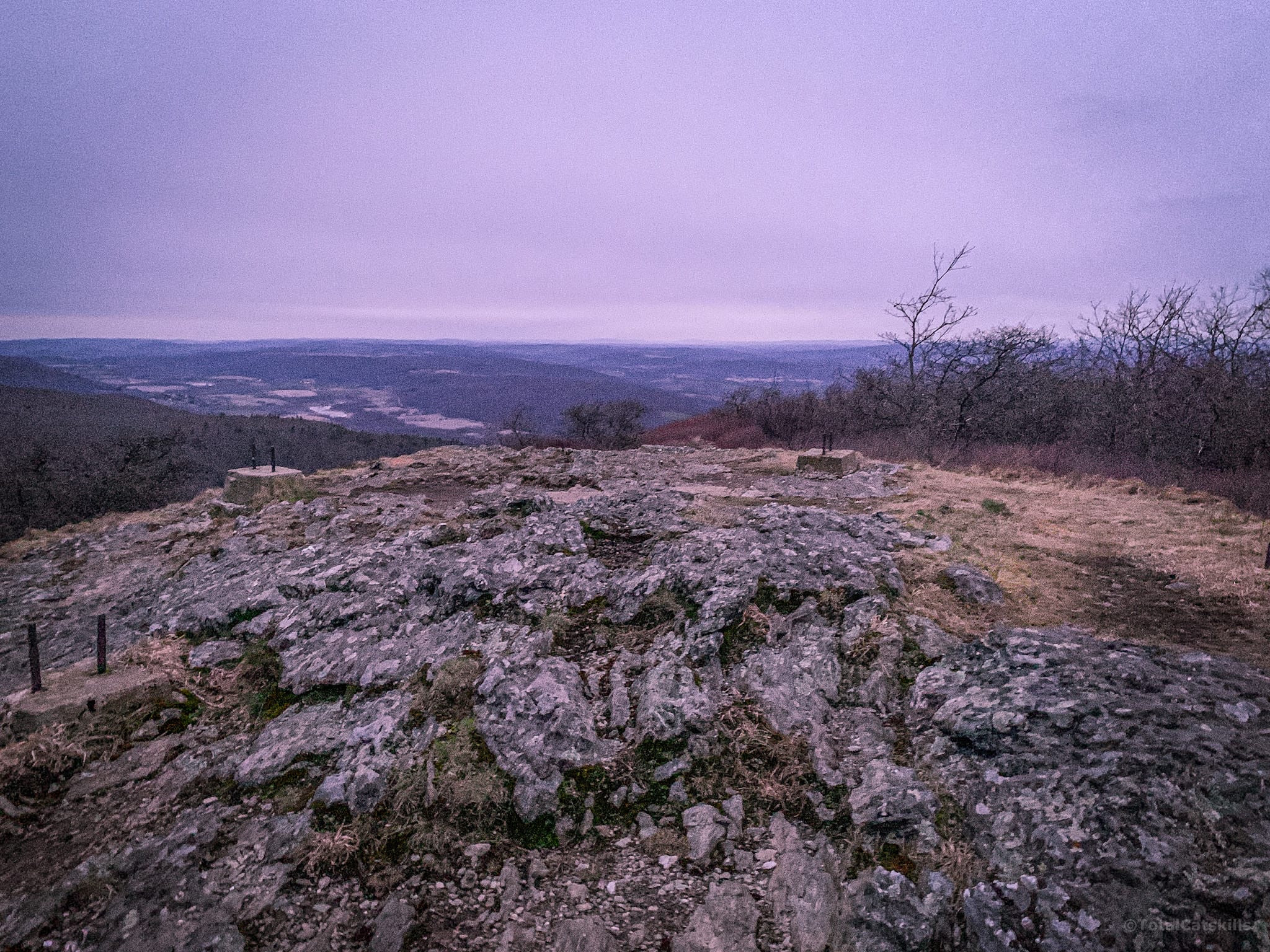
A large grassy area to the side is a great spot to rest and snack before turning around. From here, it’s just over three miles back to the parking area.
I had such fun company on this hike, I didn’t take many photos. I’ll return to Alander soon, as there are two more excellent trailed routes to the summit.
Similar Hikes
This hike offers excellent solitude and interesting geology the whole way.
It also has great scenic views from several points along the ridge line.
Alander Mountain from Bash Bish Trailhead Trailhead
Large lot — but popular and busy as it serves Bash Bish Falls State Park.
Google Maps Location: 42.117580, -73.508318
The map below shows the exact topographic location of the trailhead
Cell Service
As always, you cannot depend on cell service in mountainous areas but, in this part of the Taconics, cell reception is actually pretty good for much of the hike. My network is Verizon. YMMV.
The parent mountain for this hike is Alander.
